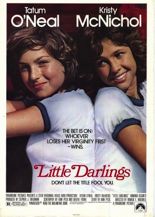
 Little Darlings is a film that could reasonably only have been made in the period that marked the end of the ’70s and the beginning of the ’80s. This is because, like American Pie, Little Darlings is a film about teenagers making a bet to see who will be the first to lose their virginity, but unlike American Pie, it’s teenage girls who are depicted making this life-lesson-in-the-making wager.
Little Darlings is a film that could reasonably only have been made in the period that marked the end of the ’70s and the beginning of the ’80s. This is because, like American Pie, Little Darlings is a film about teenagers making a bet to see who will be the first to lose their virginity, but unlike American Pie, it’s teenage girls who are depicted making this life-lesson-in-the-making wager.
That distinction should be enough to scare studios away from remaking it, but what truly makes it a product of its time is an earnestness and sincerity that bears no relation to the kind of movies Hollywood makes in today’s cultural climate, where 15-year-olds are allowed to dress like porn stars, so long as their hands sport a purity ring. Little Darlings is a flawed film, but one which approaches its potentially icky plot with far more care and respect than you’d ever assume based on description alone.
 In what amounted to a 1980 casting coup, the film stars Academy Award winner Tatum O’Neal and two-time Emmy winner, Kristy McNichol (who just happened to be my first celebrity crush when I was 8 years old) as the titular darlings. O’Neal is Ferris, the rich girl, and McNichol is Angel, the tough girl; they quickly become summer-camp rivals and compete to “become women” by pursing Armand Assante and Matt Dillon, respectively.
In what amounted to a 1980 casting coup, the film stars Academy Award winner Tatum O’Neal and two-time Emmy winner, Kristy McNichol (who just happened to be my first celebrity crush when I was 8 years old) as the titular darlings. O’Neal is Ferris, the rich girl, and McNichol is Angel, the tough girl; they quickly become summer-camp rivals and compete to “become women” by pursing Armand Assante and Matt Dillon, respectively.
Darlings‘ two female screenwriters clearly were interested more in Angel, as her story gets much more screen time, to the point that Ferris almost becomes a supporting character, but that’s probably a good thing since McNichol’s performance is the highlight and by far the best reason to search for what has now become a difficult film to find, despite its original box-office success. —Allan Mott

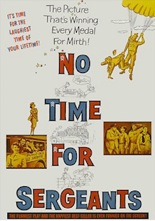
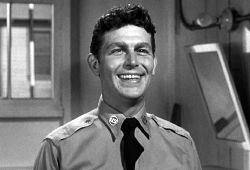 If this sounds familiar, it’s because Griffith used the concept as the basis for his Mayberry spin-off
If this sounds familiar, it’s because Griffith used the concept as the basis for his Mayberry spin-off 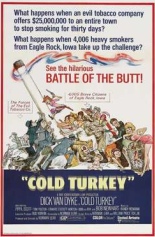
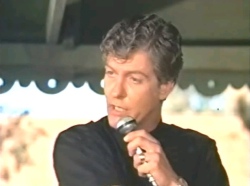 The locals are wary. The smokers are upset they’re the only ones asked to make a sacrifice, while the town’s right-wing coalition worries such a collective effort reeks of old-fashioned communism. Both groups eventually are persuaded by the reverend’s eloquence and — in the right-wingers’ case — the chance to form an authoritarian militia dedicated to keeping fellow citizens from lighting up. The town soon earns national media attention (as represented by the classic comedy duo Bob and Ray) and profits from the exposure, but at what cost?
The locals are wary. The smokers are upset they’re the only ones asked to make a sacrifice, while the town’s right-wing coalition worries such a collective effort reeks of old-fashioned communism. Both groups eventually are persuaded by the reverend’s eloquence and — in the right-wingers’ case — the chance to form an authoritarian militia dedicated to keeping fellow citizens from lighting up. The town soon earns national media attention (as represented by the classic comedy duo Bob and Ray) and profits from the exposure, but at what cost?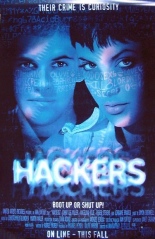
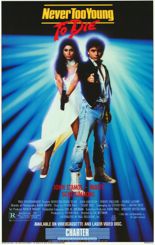
 Today, Steven Paul is best known (if at all) as the guy who keeps Jon Voight working in such modern crapsterpieces as
Today, Steven Paul is best known (if at all) as the guy who keeps Jon Voight working in such modern crapsterpieces as 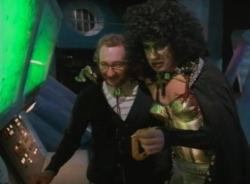 Future
Future